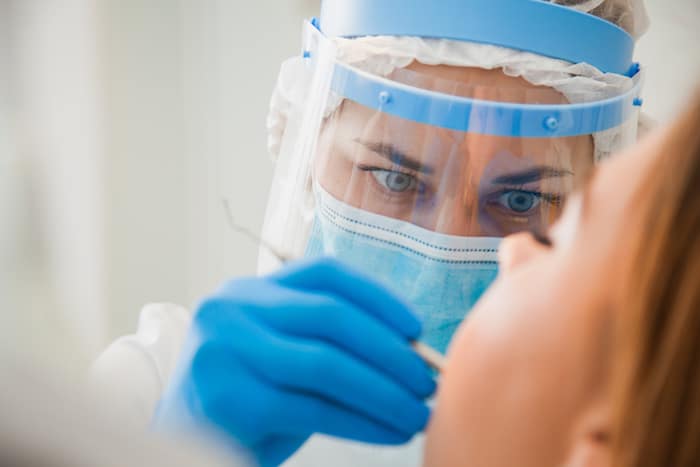According to the Occupational Safety and Health Administration (OSHA), face masks are protective tools that defend dental practitioners from pollutants such as chemicals, smoke, dirt, and other pathogens.
The Bloodborne Pathogens Standard by OSHA calls for healthcare workers to utilize respiratory protection like face masks in cases wherein sprays, splatters, particles of drops of blood, or other potentially infectious materials (OPIM) present danger.
Likewise, the Centers for Disease Control and Prevention (CDC) uses the same guideline since the membranes inside the mouth and nose can become the gateway for microbes to enter the body.
Based on CDC policy, practitioners performing dental procedures should wear a solid face shield and a surgical mask to prevent body fluids or blood from entering the nose, mouth, and eyes. If you’re a member of the dental industry and planning to purchase a face mask, read first the following tips to consider before swiping that card.
3 Categories of Mask
Before discussing buying tips, it’s essential to understand mask categories, so you’ll know which one will suit your needs. The American Society for Testing and Materials International (ASTM) establishes quality and safety criteria across various services and sectors. Healthcare entities follow ASTM guidelines to carry out best practices. Here are ASTM categories for masks:
- Level 1: These are low-protection masks suitable for immediate and simple medical procedures that don’t include sprays, liquids, or aerosols.
- Level 2: Moderate-protection masks fitting to use for health procedures involving small to average levels of sprays, liquids, or aerosols.
- Level 3: High-protection masks are ideal for procedures dealing with intense levels of sprays, liquids, or aerosols—for example, dental surgery or crown preparation.
Please note that face masks are available in myriad forms and sizes. While some are flexible, others come in preformed shapes. Typically, elastic straps or some strings secure face masks. Typically, they are snug around the cheeks and nose to prevent eyeglasses from fogging due to the warm discharged air. However, there are instances that workers still encounter fogging in their glasses. In this case, people turn to an anti fog mask to solve this issue.

Tips to Consider When Buying Masks
Once you determine the right face mask for you, consider the following tips when buying:
- Discern useful features: If you regularly encounter liquid splashes and blood, consider utilizing a level three face mask. Tapes and anti-fog films can help reduce fogging problems, while protective face shields secure your eyes from harmful substances.
- Check filtration: High filtration face mask or an N95 respirator is suitable when dealing with extremely contagious patients or if the medical procedure you’ll be performing involves smoke.
- Choose the right fit: When not correctly worn, masks can place health workers at risk. Keep in mind masks should fully cover the mouth and nose to forge a seal on your face and avoid openings that bring the likelihood of respiratory exposure.
- Assess fluid resistance: As mentioned earlier, if you typically deal with liquid splatters or blood, consider opting for level three or fluid-resistant surgical masks.
Takeaway
Overall, with so many choices available on the market today, it’s essential to choose the right mask that will provide you the adequate protection while performing your job. Hence, keep in mind the tips mentioned above before buying any face protecting tool.
When wearing surgical masks, the CDC guidelines further advise workers to change their face masks every 20 minutes of immense exposure to substances or nearly an hour of everyday use. The reason for this practice is because when the device becomes wet, they turn ineffective.
Aside from this, experts likewise remind all healthcare workers that masks are disposable and one-time use only products. It would be best if you threw them away properly right after every patient handling. When removing face masks, see to it you only touch the bands, loops, or strings.
The Editorial Team at Healthcare Business Today is made up of skilled healthcare writers and experts, led by our managing editor, Daniel Casciato, who has over 25 years of experience in healthcare writing. Since 1998, we have produced compelling and informative content for numerous publications, establishing ourselves as a trusted resource for health and wellness information. We offer readers access to fresh health, medicine, science, and technology developments and the latest in patient news, emphasizing how these developments affect our lives.








